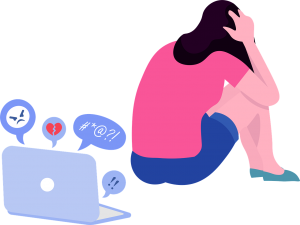I’m an Adult—How Do I Get Diagnosed With ADHD?
 If you think you might have ADHD (Attention-Deficit/Hyperactivity Disorder) as an adult, here’s what you can do. Read more ›
If you think you might have ADHD (Attention-Deficit/Hyperactivity Disorder) as an adult, here’s what you can do. Read more ›
 If you think you might have ADHD (Attention-Deficit/Hyperactivity Disorder) as an adult, here’s what you can do. Read more ›
If you think you might have ADHD (Attention-Deficit/Hyperactivity Disorder) as an adult, here’s what you can do. Read more ›
 If you have ADHD, you may struggle to stay focused during conversations. Retaining information given auditorily is difficult for everyone, but especially difficult for someone with ADHD.
If you have ADHD, you may struggle to stay focused during conversations. Retaining information given auditorily is difficult for everyone, but especially difficult for someone with ADHD.
To help adults with ADHD pay attention and retain information from conversations or oral instructions, here are some strategies and resources. Read more ›
 What’s the best advice you can give to a new college student? Connections are everything.
What’s the best advice you can give to a new college student? Connections are everything.
Research for decades has shown that the relationships students cultivate in college – with professors, staff and fellow students – are key to success. Read more ›
 The challenges of living with attention-deficit hyperactivity disorder (ADHD) aren’t just limited to kids. The condition often lasts into adulthood, where working professionals and sometimes parents have to contend with symptoms that make it difficult to stay organized, focus, and reign in impulsive behavior. Read more ›
The challenges of living with attention-deficit hyperactivity disorder (ADHD) aren’t just limited to kids. The condition often lasts into adulthood, where working professionals and sometimes parents have to contend with symptoms that make it difficult to stay organized, focus, and reign in impulsive behavior. Read more ›
Even if you set up your accommodations through your Disability Services Office at your college, you should talk to your professor or instructor about your accommodations and your disability.
Read more ›High school juniors and seniors with learning differences and/or mental health challenges should use this College Transition Checklist to prepare for applying to and attending college.
Read more › An important part of growing up is learning how to take care of yourself.
An important part of growing up is learning how to take care of yourself.
Set to Go, a collection of tools and information from the JED Foundation, helps you prepare for a successful transition to college. Read more ›
 The following selection of books includes resources for parents, young adults, kids, teens and tweens. Read more ›
The following selection of books includes resources for parents, young adults, kids, teens and tweens. Read more ›
 Toxic shame is a feeling that you’re worthless. It happens when other people treat you poorly and you turn that treatment into a belief about yourself. You’re most vulnerable to this type of poor treatment during childhood or as a teen. When you feel toxic shame, you see yourself as useless or, at best, not as good as others. Read more ›
Toxic shame is a feeling that you’re worthless. It happens when other people treat you poorly and you turn that treatment into a belief about yourself. You’re most vulnerable to this type of poor treatment during childhood or as a teen. When you feel toxic shame, you see yourself as useless or, at best, not as good as others. Read more ›
 Life is unpredictable and anxiety-producing. There’s no doubt that technology and social media have intensified our anxiety, and our lack of in-person connection and interaction, time in nature, and engagement in our communities is creating what some mental health professionals are referring to as “digital anxiety.” Read more ›
Life is unpredictable and anxiety-producing. There’s no doubt that technology and social media have intensified our anxiety, and our lack of in-person connection and interaction, time in nature, and engagement in our communities is creating what some mental health professionals are referring to as “digital anxiety.” Read more ›